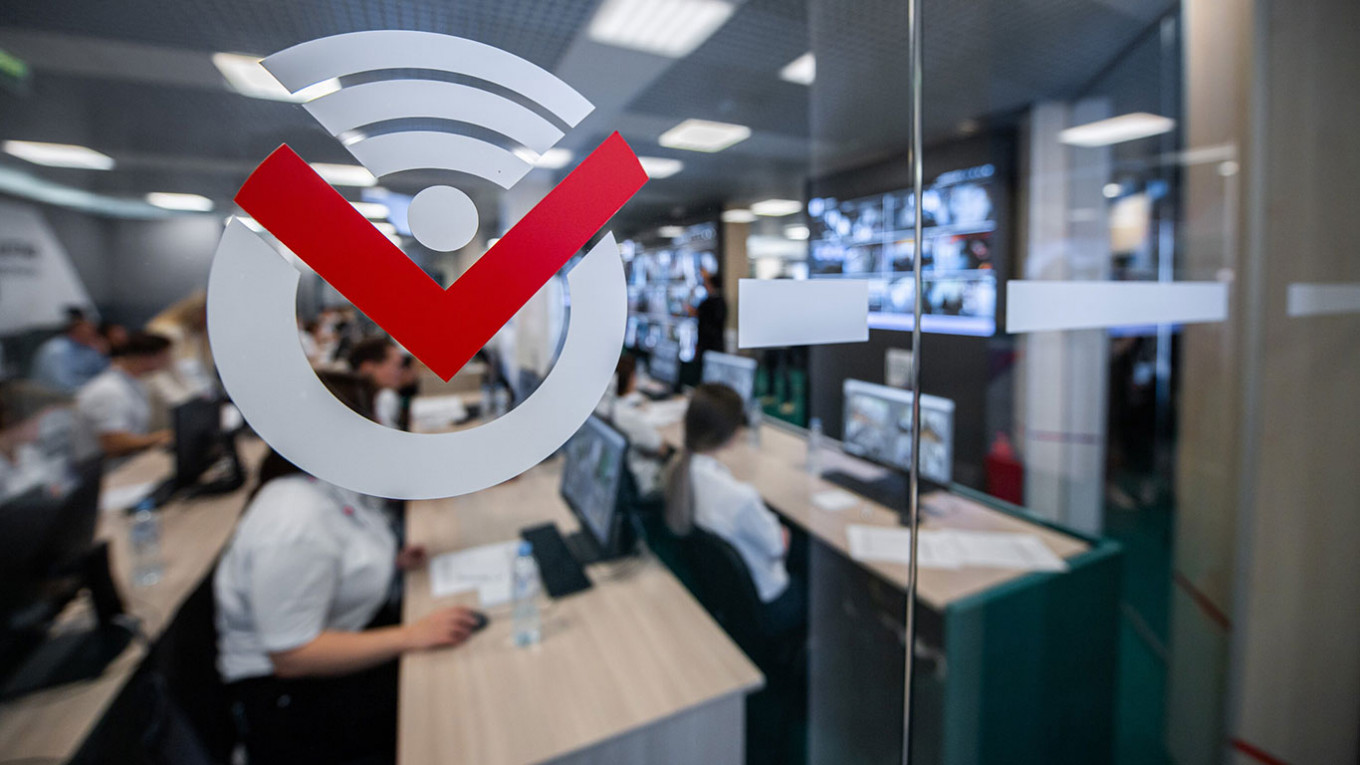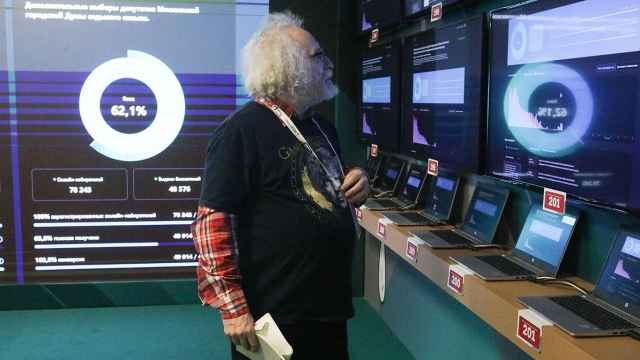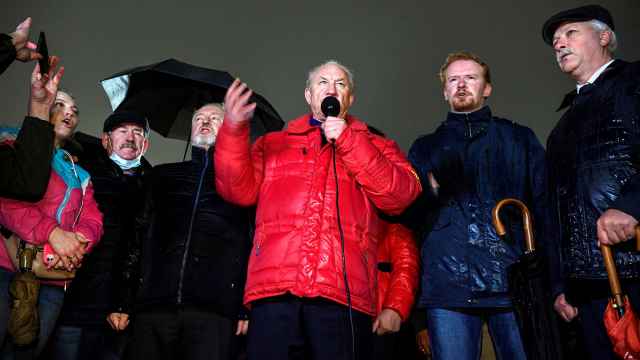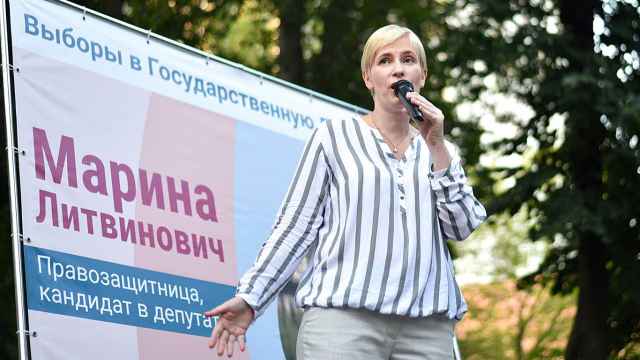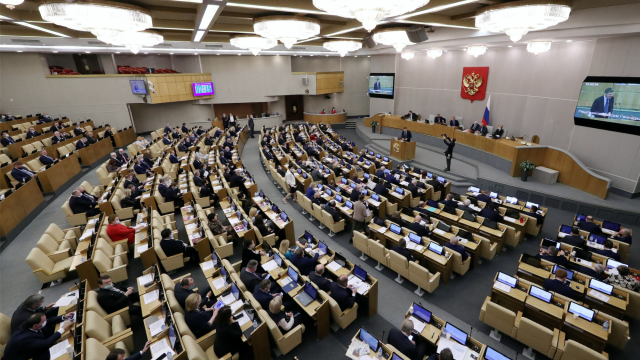Russian lawmakers have expanded the country's controversial online voting system to be used in all national elections ahead of President Vladimir Putin’s anticipated re-election in 2024 and banned figures like jailed Kremlin critic Alexei Navalny from the presidency.
Seven Russian regions voted online in last year's parliamentary elections, with the results questioned by the opposition after their early leads in offline voting were erased by e-votes in Moscow. Even before the gradual move to online voting, critics said the system would make it easier for authorities to falsify results.
On Friday, Russia’s lower house of parliament said it passed amendments adopting the remote electronic voting system across the country.
“Citizens will be able to vote via the internet or using a special mobile application,” the State Duma said.
The same legislation also bans people affiliated with "extremist" organizations — an apparent reference to Navalny — from the presidency and introduces a so-called registry of “foreign agents.”
“The right to be elected president is denied to citizens involved in the activities of an extremist or terrorist organization, if there is a court decision,” the Duma said in a statement.
A Moscow court outlawed Navalny’s political and activist network as “extremist” last summer amid a wider crackdown on dissent.
The Duma’s adopted bill bans leaders of “extremist” groups from the presidency for five years after the court ruling.
Additionally, the newly passed legislation tasks Russia’s Justice Ministry with maintaining a registry of “foreign agents” and their affiliates.
Candidates associated with foreign agents will be required to visibly mark their campaign and other materials.
In order to become law, the online voting bill must obtain a majority in Russia’s upper house of parliament and get Putin’s signature.
Putin, 69, who launched an unprovoked invasion of Ukraine more than two weeks ago, has said he has not yet decided whether to run for re-election in 2024.
Russians were allowed to vote online in a nationwide vote for Putin's constitutional amendments in 2020, formally granting him the right to stay in power until 2036 and become Russia’s longest-serving leader since Peter the Great.
A Message from The Moscow Times:
Dear readers,
We are facing unprecedented challenges. Russia's Prosecutor General's Office has designated The Moscow Times as an "undesirable" organization, criminalizing our work and putting our staff at risk of prosecution. This follows our earlier unjust labeling as a "foreign agent."
These actions are direct attempts to silence independent journalism in Russia. The authorities claim our work "discredits the decisions of the Russian leadership." We see things differently: we strive to provide accurate, unbiased reporting on Russia.
We, the journalists of The Moscow Times, refuse to be silenced. But to continue our work, we need your help.
Your support, no matter how small, makes a world of difference. If you can, please support us monthly starting from just $2. It's quick to set up, and every contribution makes a significant impact.
By supporting The Moscow Times, you're defending open, independent journalism in the face of repression. Thank you for standing with us.
Remind me later.


